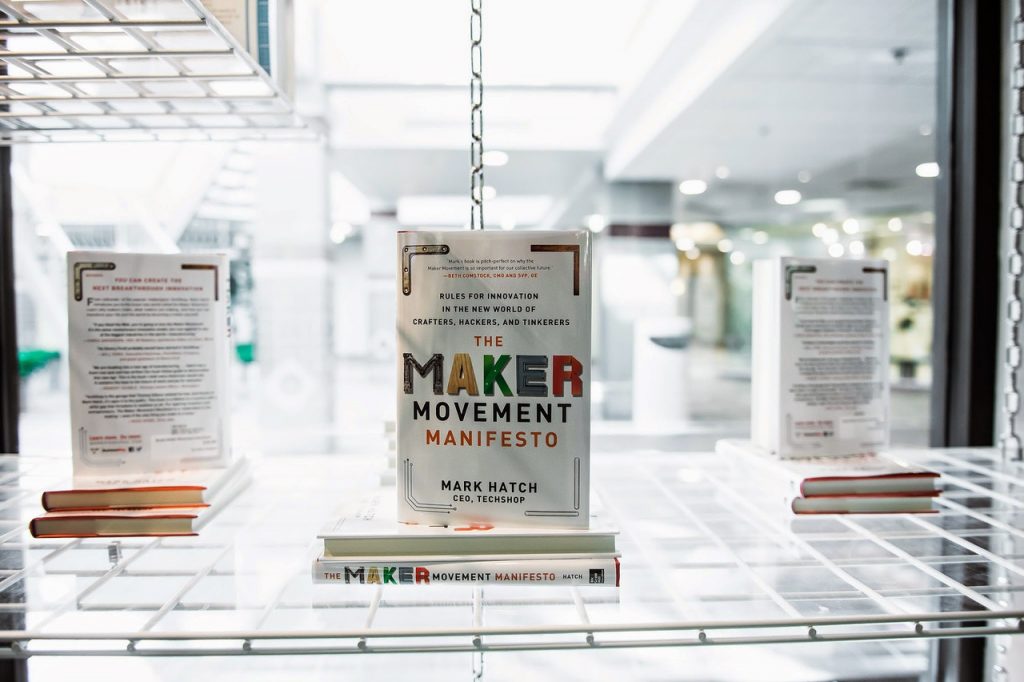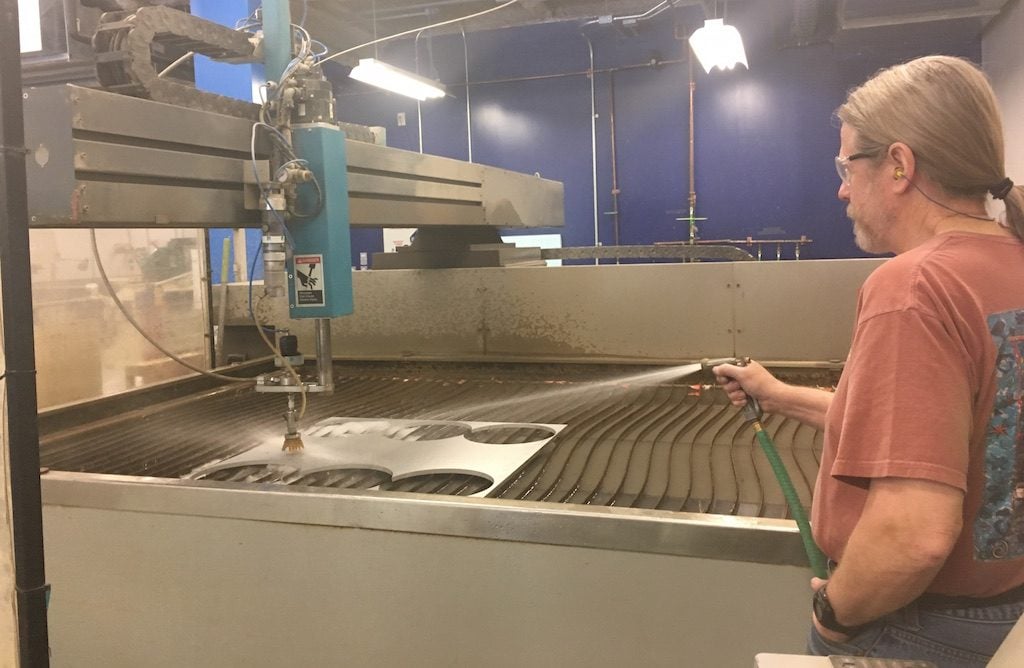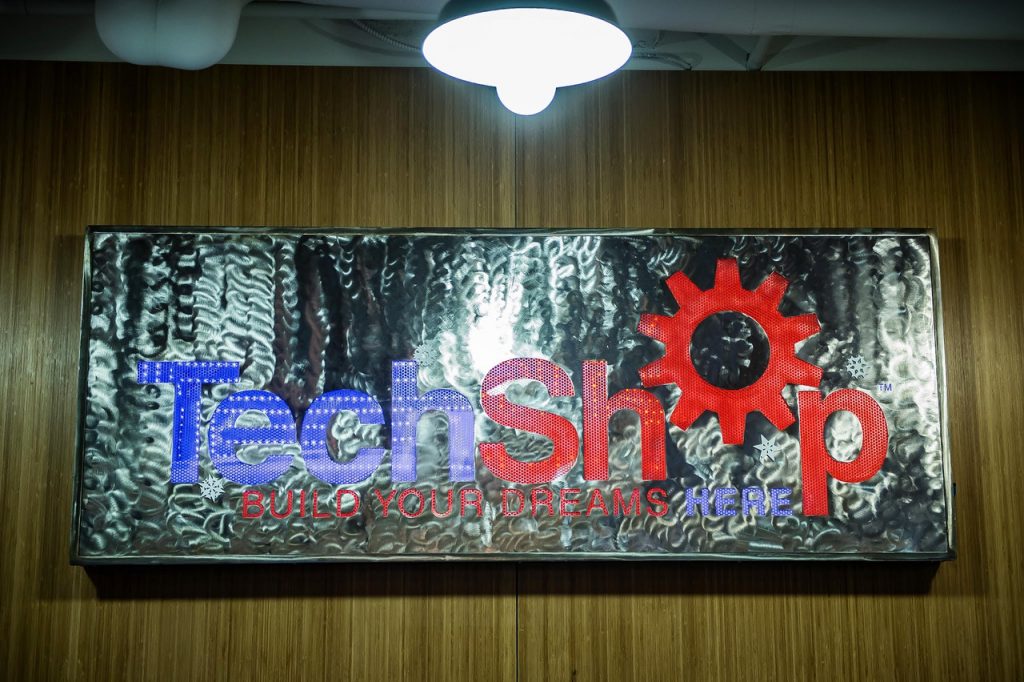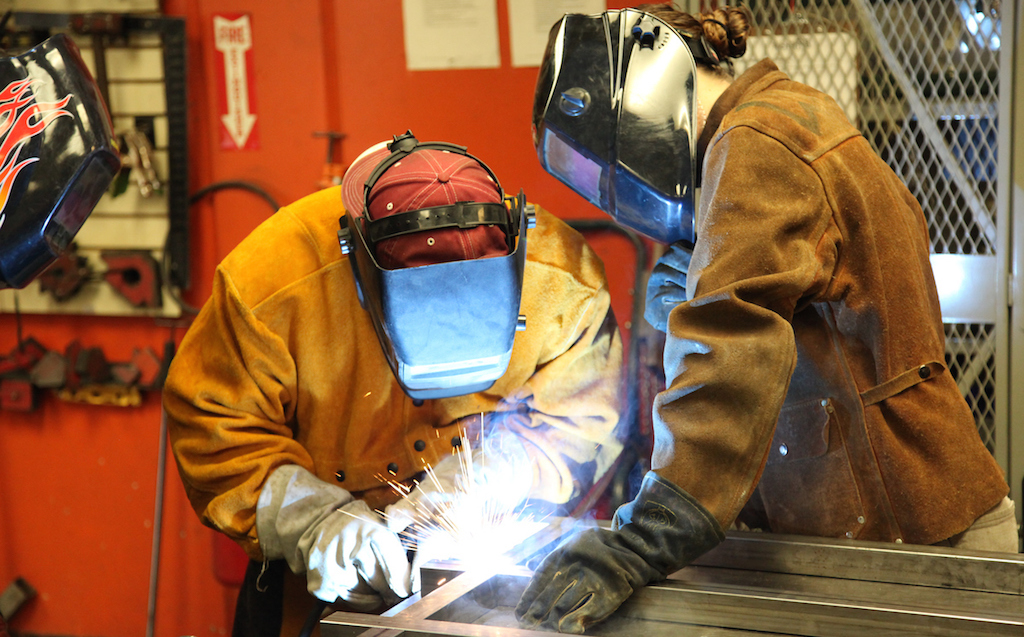Washingtonian is spending the day exploring Crystal City. Read all of our Crystal City Day coverage here.
The first thing you notice when you walk into TechShop is the buzz of the machines. There’s 3D printers, laser cutters, table saws, and something called a waterjet that can cut through 5 inches of steel.
But way more interesting than the machines are the people who use them.
”It’s a village of nerds—it’s a little compound of village of nerds,” says Tom Flanigan, one of about a dozen members I met at the Crystal City makerspace the day I visited.
Tom’s background is in programming and robotics, but he comes to TechShop to pick up new skills by taking classes and learning from other members. For about $150 a month, Tom gets access to over $1.5 million worth of equipment. And that’s not even the best part.
“The classes are great, but the absorption through osmosis is amazing,” he says. “It’s one thing to see in a video—you can learn just about anything you want from YouTube—but to see if up close and ask questions in real time is just invaluable. I love this place for that—it’s a breeding ground for new ideas.”
Listen to the audio version of the story here:
The Crystal City TechShop is one of eight around country. They’re a part of something called “the maker movement,” which is all about doing things yourself and then sharing what you learn through collaboration.
Mark Hatch, the former CEO of TechShop and one of the pioneers of the movement, wrote a book called The Maker Movement Manifesto: Rules for Innovation in the New World of Crafters, Hackers, and Tinkerers. In it, he lays out the core principles of what it means to be a maker. “Making is fundamental to what it means to be human,” he writes. “We must make, create, and express ourselves to feel whole.” He also argues that America is experiencing a revolution of small-scale manufacturing and innovation.

Since it opened in 2014, the Crystal City workshop has become a 22,000-square-foot playground for aspiring entrepreneurs who can’t afford the expensive tools or equipment themselves.
Daniel Rosenberry is one of those entrepreneurs.
A couple years ago, Rosenberry and his brother were filming a video for fun when his brother had the idea to recreate that famous 360-degree shot from The Matrix. You know the one.
“If you’ve seen the iconic shot of Keanu Reeves—where he’s dodging bullets—and how they shot that traditionally was with an array of 100 cameras,” he says. “Our product resembles that same sort of effect but instead of using 100 cameras it uses one camera.”
So Daniel made a prototype of the camera rig at TechShop and started selling them online and renting them out to red carpets, TV shows, and sports arenas.
“We’ll go up to Madison Square Garden almost every other week now to do the Knicks or Rangers,” he says. “If you ever go to a Cavs game, their opening video is filmed with our unit, so you have LeBron James up there slapping his biceps on the Jumbotron as the camera’s spinning around him.”
The name of the company is Orcavue, which stands for orbiting camera view. It also comes from orcas, the killer whales, which are known for circling their prey in the water and herding them into a group.
Next up for Orcavue is the HBO premiere of Game of Thrones.
While Daniel’s company is one of the most successful ones that have come out of TechShop since it opened, it’s also fertile ground for smaller startups and individual hobbyists and artists. When I went into the metal shop, I found two artists who were working on an art installation using the waterjet, the machine that uses a highly pressurized stream of water to cut through just about anything.

They were cutting the materials to make a public art installation for the Hagerstown Cultural Trail. “The overall piece is called a fantastical garden,” says Alison Sigethy. “If you pictured the personal garden in Dr. Seuss’s yard, that’d kind of what you got.”
Her partner, Dennis McCloud, started using the waterjet, which cut circles through the metal like butter. The stream exerts more pressure that what’s at the bottom of the ocean. If the water stream touched the tip of your fingers, the blood vessels in your toes would burst. That’s why you have to take several classes to be able to operate the thing.

Back in the communal space, I find the new general manager, Jade Garrett. It’s only her second day, but she was a lifetime member before she got hired. Of all the people I met in the shop, she was by far the most enthusiastic and passionate.
“We’re all fighting for being able to let our creativity out in some way,” she says. “You’re always learning, and you’re always challenged. I’m seeing amazing things come from almost nothing. It’s just their imagination—they can make it.”
The sheer range of things people can make at TechShop is incredible. From handmade jewelry to furniture and even small planes, the possibilities are endless.
“Everybody who walks in has an inner drive: something that won’t be satisfied until you actually do it—or try it,” Garrett says.
And that’s really what TechShop is all about: trying stuff. And embracing the village of nerds.



















